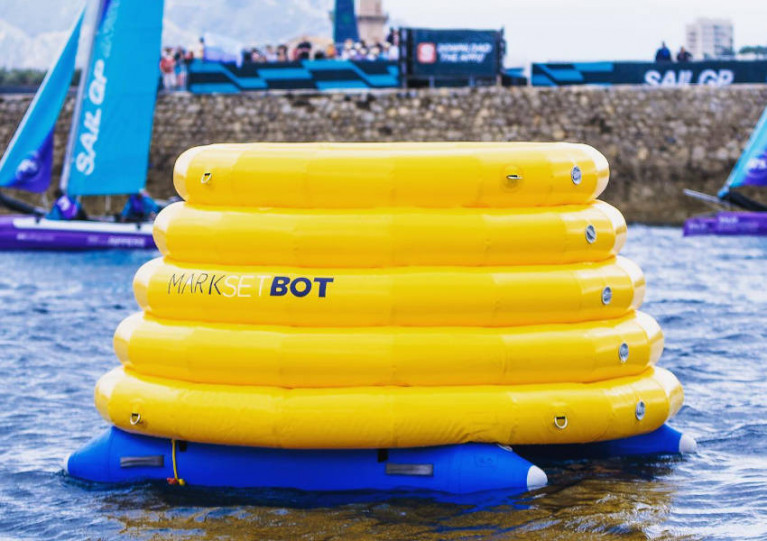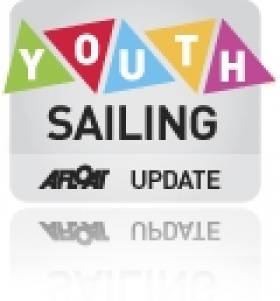Displaying items by tag: US Sailing
AmericaOne Foundation Responds to US Sailing Lawsuit
AmericaOne Foundation has released a statement in response to US Sailing’s lawsuit alleging harmful practices, describing the accusations as “unfathomable”.
As previously reported on Afloat.ie, three high-profile departures from US Sailing last year — Paul Cayard, Bill Ruh and Jose Leandro Spina — were named in the lawsuit by the governing body for sailing in the United States.
The body’s complaint alleges actions that have “harmed athletes, the US Sailing Team, and US Sailing’s business and reputation with donors, sponsors, competitive sailors, and the larger sailing community and Olympic movement”.
However, AmericaOne’s response outlines what it says are the reasons behind Cayard’s and Ruh’s departures — and claims that any damage incurred by US Sailing by the withdrawal of donors and sponsors are of its own doing.
“Because donors contribute based on trust and confidence, when this team [of Cayard, Ruh and the coaching staff] resigned, it was no surprise that many donors withdrew their support and commitments,” it says.
The full statement is available on the America One Racing website HERE.
The governing body for sailing in the United States has filed a lawsuit against a competitor organisation for alleged harmful practices, as Marine Industry News reports.
US Sailing’s official complaint claims accuses America One Racing of attempting to misleadingly represent itself as the de facto governing body for sailing in the country.
America One Racing was founded as a development programme for competitive sailors following a series of high-profile departures from the US Olympic Sailing Programme last year — including executive director Paul Cayard, United States Sailing Foundation chairman Bill Ruh and performance Director Leandro Spina.
US Sailing has named all three in its lawsuit, alleging that their actions have “harmed athletes, the US Sailing Team, and US Sailing’s business and reputation with donors, sponsors, competitive sailors, and the larger sailing community and Olympic movement”.
The body alleges interference with its business relationships that have cost it more than $4 million in funding, and is seeking more than $5 million in damages.
Marine Industry News has more on the story HERE.
US Sailing has partnered with the company behind the sport’s first robotic marker to help get America’s sailing community back on the water.
Afloat.ie previously reported on the MarkSetBot, an invention by US sailor Kevin Morin that essentially combines a standard race marker with a trolling motor and GPS receiver, allowing it to be set remotely by computer or mobile device.
“The MarkSetBot inherently allows for social distancing,” says the company behind the pioneering product, which also boosts its environmental credentials — eliminating the need for boats to tow out race markers.
MarkSetBot is now offering US Sailing member clubs a 33% discount on a three-month lease for three marker bots. For more about the MarkSetBot robotic marker, see HERE.
Voices Across The Pond Call For Sailing Growth
#Sailing - Scuttlebutt Sailing News has highlighted some North American voices adding to the chorus that calls for a renewed emphasis on dinghy sailing and encouraging a broader base of participation in the sport.
Former ISAF president Paul Henderson shared his thoughts on the elements that grew the sport of sailing over the past four decades, and what he believes is holding sailing back today.
Aside from the expense of new boats and the emphasis on single-handers and college sailing that prioritises the most elite athletes, the Canadian sailing hand also believes yacht clubs in North America "have forgotten what they are about... [thinking that] regattas should be a profit centre, rather than the hosting the sailors cheaply as the raison d’etre of a yacht club."
Meanwhile, US Sailing president Tom Hubbell has added his own suggestions for introducing young newcomers to the sport through the one-design classes - via mentoring, networking socially and, very importantly, limiting failure so that young sailors will be encouraged to return again and again for more.
Their comments come after former ISA president Roger Bannon's candid assessment of the state of sailing in Ireland today.
According to Bannon, the "importance of supporting elite and Olympic sailing" must become "a subsidiary focus to the main objective of getting people sailing competently and safely in whatever boat they wish".

























































